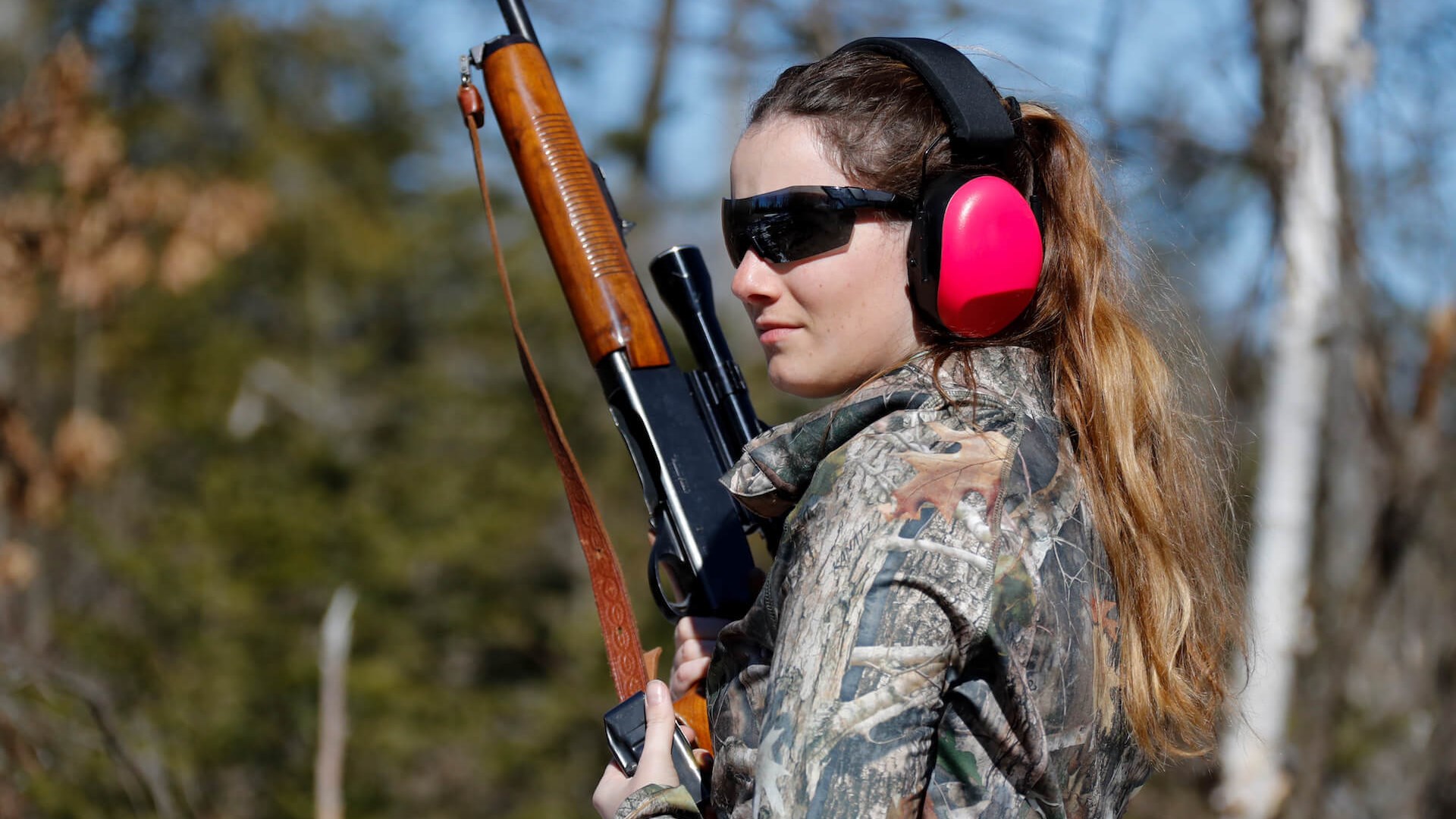Warning: Hunting Can Be Hazardous To Your Hearing
&srotate=0)
Hunting without hearing protection poses a serious threat to hearing health and quality of life. This coming hunting season in Texas, over one million licensed hunters will be spending countless hours at the shooting range and in the field. Whether out shooting skeet and sporting clays, or hunting dove, ducks, geese, pheasant, quail, turkey, or white-tailed deer, you should heed the following warning: when unprotected, discharging firearms will be hazardous to your hearing health. This article summarizes what hunters, and their significant others, need to know about hearing, hearing loss, hearing protection, and hearing care.
HUNTER’S HEARING
Hearing is a distance sense that subserves three functional levels important to hunters. The primitive/subconscious level is the basic ability to hear incidental background environmental sounds (e.g., rustling leaves, running creek water) which allow hunters to psychologically maintain the feeling of being a part of the living natural world. The signal/warning level helps hunters receive and react to the sounds of approaching game (e.g., dove wings whistling, turkey gobbling) and warnings of danger in the environment (e.g., rattlesnake, thunder). The social/symbolic level, the highest function of hearing, enables hunters to enjoy the social aspect of hunting through verbal communication with one another before, during, and after the hunt. At any given moment, hunters hear on all three levels at once. Unfortunately, permanent hearing loss resulting from unprotected exposure to loud impulse noise from firearms will negatively affect all three functional levels, ultimately diminishing the success and enjoyment of the hunting experience.
NOISE INDUCED HEARING LOSS
Although somewhat variable, the sound pressure level of the impulse noise from firearms commonly reaches 140dB, a level well above that (85dB) which makes employer provided hearing protection in industry compulsory. Among hunters and bystanders, repeated exposure to loud gunfire physically damages the delicate sensory hair cells in the inner ear, eventually resulting in permanent noise induced hearing loss (NIHL). NIHL, which typically affects the frequency range important for understanding speech, will lead to hearing and communication difficulty on the range, in the field, and beyond (e.g., home, work, and social settings). The bad news: hunters that choose not to wear hearing protection can expect to develop NIHL, tinnitus (the perception of sound in the ears when no external source exists), and even hyperacusis (a hypersensitivity to or decreased tolerance of normal sound). The good news: the undesirable effects of shooting on hearing can be drastically reduced or eliminated through routine annual audiologic evaluation and proper selection and use of hearing protection.
HEARING PROTECTION
Hearing protection is available in a wide variety of styles (e.g., disposable foam earplugs,
earmuffs, custom in-the-ear combination amplifier/sound attenuators), sound attenuation levels, and prices. But hunting presents unique challenges when it comes to the selection of hearing protection because the ability to hear at all functional levels is critically important. Disposable foam plugs and earmuffs can provide excellent protection when worn properly, but they significantly compromise the ability to hear many of the sounds requisite for a safe and enjoyable hunt. To preserve the ability to hear at all functional levels, and at the same time receive an appropriate level of sound attenuation, custom in-the-ear electronic amplifier/attenuator devices are the best choice.
HEARING CARE FOR HUNTERS
To help ensure that hunting does not ultimately compromise hearing health and quality of life, hunters and bystanders such as children and spouses are advised to do the following:
-
Commit to protecting the hearing that you have now.
-
Consult with an Audiologist.
-
Gain an understanding of the immediate and long-term consequences of unprotected gunfire exposure.
-
Undergo an annual comprehensive hearing test.
-
Select, purchase, and consistently wear appropriate hearing protection.
With a little education, preparation, and appropriate use of hearing protection, NIHL does not have to be a part of the hunting experience.
IS EXPOSURE TO GUNFIRE AFFECTING YOUR HEARING?
The following questions will help you make a quick assessment.
After shooting, do you experience:
| Yes | No | |
| 1. A feeling of “fullness” in one or both ears? | ||
| 2. Muffled sound in one or both ears? | ||
| 3. A reduced ability to hear quiet sounds temporarily? | ||
| 4. Tinnitus or ringing in one or both ears? | ||
| 5. The need to turn up the volume on your TV? | ||
| 6. A diminished enjoyment of music? | ||
| 7. A hypersensitivity or decreased tolerance to normal sound? | ||
| 8. A reduced ability to understand speech when noise is present? |
If you answered “YES” to any of these questions, or if you hunt without hearing protection, you owe it to yourself and to your family to take advantage of this SPECIAL OFFER.
CTENT offers custom, comfortable, high performance digital technology for hunters seeking both sound amplification and hearing protection. Digital means lower noise, less feedback, and the ability to tune into your quarry and hunting companions while effectively protecting your hearing from gunfire.